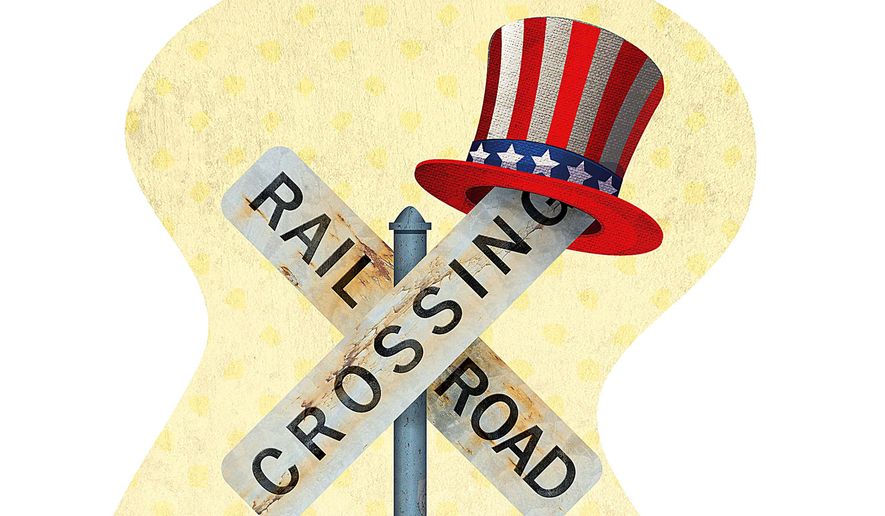President Barack Obama made it clear in his final State of the Union address that he wants to be remembered as the turnaround guy. He repeatedly tried to convince Americans (and apparently even himself) that the economy is strong and the nation is “great again” by citing stats such as a 2.5 percent drop in unemployment and the addition of nearly 8 million American jobs.
That economic “turnaround” – which is actually a result of Americans finally beginning to climb out from under the weight of Mr. Obama’s failed statist policies – may be short-lived if Obama holds firm to his plan to unleash thousands of new regulations on American businesses over the coming weeks.
These regulations will be disastrous to the economy and threaten individual industries, as a new report on the history of the rail sector shows. The fact that the rail industry is even around at all is a bit of a miracle given the mountain of red tape and burdensome regulations the industry was forced to plow through just to operate. Rail’s history provides a cautionary tale for how not to regulate in Washington.
According to regulatory scholar Marc Scribner of the Competitive Enterprise Institute, narrow lobbying interests created the first-ever first national industrial regulatory body in the U.S. in 1887 to oversee the railroads and impose cost controls. Certain commodities got lower rates, while others subsidized their costs.
This “common carrier” regulations was not unlike the power grab of the Federal Communications Commission today to implement its dreaded “net neutrality” rules whereby content companies are favored over Internet providers. Sold as a “protection,” the heavy hand of government thought it knew better than industry on how to run its businesses.
Shortly thereafter, Theodore Roosevelt advanced legislation setting maximum rates for freight and passenger rails. Mr. Scribner says this “greatly devalued railroad stock, leading to the Panic of 1907, which was later used to justify the creation of the Federal Reserve System in 1913.”
What America got was a new precedent for government intervention and the great decline of a previously successful industry. Nearly 25 percent of the nation’s rail network was owned by bankrupt entities by 1979.
Recognizing that the rules of yesteryear were to blame, elected officials helped unshackle the system by partially deregulating the system in 1980 and allowing more self-governance. Massive investments and growth have followed – including nearly $60 billion the past two years – shocking no one who stayed awake during Econ 101.
“Railroads sought economic liberalization after almost a century of struggling under an ever more restrictive regulatory regime that left them facing ruin,” Mr. Scribner recently wrote. “They succeeded in impressive manner — a once-moribund industry recovered rapidly and is now again a vibrant part of the American economy.”
A new “State of the Industry” report from the Association of American Railroads shows that freight rail is quickly innovating, deploying new technologies and massive funds to improve operations, further proving that less government leads to better results. But the point remains: Unelected bureaucrats can almost singlehandedly derail a pivotal economic engine out of a senseless commitment to regulation.
Against the backdrop of election season and an ambitious president, Scribners present an interesting question: “Shouldn’t more American businesses explore similar investments in liberalization?” And better yet, shouldn’t Washington think twice before butting in?
Fresh analysis of the Federal Register from D.C.-based Mehlman Castagnetti Rosen & Thomas shows that the final years of a presidency bring 26 percent more regulations. In the case of Mr. Obama, the number could be much higher. According to a recent Politico report, Mr. Obama is looking to “career bureaucrats” to advance more than 4,000 regulations before May 17. Those regulations could cost as much as $100 million.
Rather than accept this as the norm, leaders in Washington should hold fire and let the market work its will. Otherwise, successful industries could be turned upside down like railroads long ago, and the dark clouds of recession may soon become pouring rain.




Please read our comment policy before commenting.